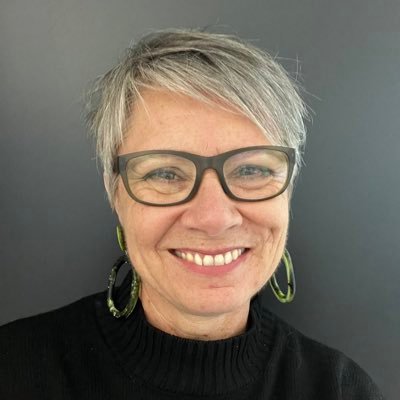
Ida Institute
@IdaInstitute
Followers
4K
Following
1K
Media
683
Statuses
4K
We develop free tools and training to help hearing care professionals deliver better care through person-centered principles.
Kongebakken, Denmark
Joined August 2011
Hooray! My Hearing Explained for Children is now being used by @UHSFT @UHSAudiology to support children with hearing loss during their appointments.
Around 4⃣ in every 1,000 children in the UK have permanent hearing loss 🧒 @UHSAudiology @UHSFT are now using an @IdaInstitute tool to support them, following an evaluation by #Southampton researchers that found it improves communication. Read more: https://t.co/TpOrh01dgD
0
1
2
Benefits of open-ended questions: •Patients are given space to tell their story, add context, and to feel safe •Clinicians learn what is important to the patient •Talk time is more evenly distributed •Patient autonomy is supported •Client feels heard and respected
0
0
1
Starting with “Why” or “How” often lead to fuller responses and can lead to unexpected information that is crucial for a hearing care professional.
1
1
1
Want to understand your clients better so you can help them better and faster? One way is through open-ended questions. Open-ended questions are ones that can't be answered simply by "yes" and "no" and require elaboration.
1
1
3
Doug Beck recommends using @IdaInstitute questionnaires & tools when offering adult aural rehabilitation #BAAConf
0
4
8
5. Be sure to check in with your client regularly to make sure they are understanding the information.
0
0
0
4. Use concrete instructions. For example, you could say, “Use earplugs when going to a concert,” rather than, “Avoid exposure to excessive noise.” People can perceive information to be more important when it contains a specific instruction.
1
0
1
3. Supplement verbal information with written and visual information. Written details are typically better remembered than verbal and lead to better adherence to treatment.
1
0
0
2. Stress key pieces of information, repeat information, and be conscious of how much information is shared in one sitting.
1
0
0
1. Present important information first. People can better remember information given to them at the start of a list. It’s called the primacy effect.
1
0
0
#communication #memory #tips Did you know 40-80% of medical information provided by professionals is forgotten immediately. And almost half of what is remembered is incorrect. Fortunately, there are proven ways to relay information effectively. Here are five:
1
1
3
"One of the biggest lessons this has taught me is how to advocate for myself. I used to be afraid to ask others to accommodate me, and I’ve realized there’s nothing wrong with asking for what you need." https://t.co/UWPDnUIpjG
#audpeeps
0
0
0
Delivering bad news is never fun, but there are ways to structure it and communicate more effectively. We wrote about one way in the new issue of @ENT_AudsNews
https://t.co/zDf95Davo1
entandaudiologynews.com
0
0
2
Three simple mindsets this audiologist with a PhD in person-centered communication considers game changers for improving interactions with your clients. But the best thing? You can use these tips almost anywhere. #audpeeps #communication #tips #audiology
0
0
3
#worldhearingday Fighting hearing aid stigma, one patient at a time. A first-hand account of a trainee audiologist and his experience with the stigma of hearing aids as a person with hearing loss and as an audiologist. https://t.co/8oHeeUScwe
0
4
6
#worldhearingday #AskMeAnything #hearingloss Questions you always wanted to ask a person with hearing loss. Fighting stigma by breaking myths and providing good information right from the source. https://t.co/djUK6awMRc
0
1
7
Fancy a trip to Belgium this May? @ciicanet is throwing the first ever global advocacy conference on cochlear implants. Now, that's incentive enough, but I also hear the beer and waffles are pretty good over there... More info here:
4
0
0
However you envision the future of hearing health care, providers will likely need to boost their person-centered skills. https://t.co/ULqosm8QTy
#hearingloss #HOH #audiology #livingwithhearingloss #disability #PCC @IdaInstitute
livingwithhearingloss.com
Hearing care will no longer be a one-way street with clients on the receiving end. Providers will need to boost their person-centered skills.
0
1
4
It's tinnitus awareness week Whizzing, hissing, ringing, beeping. Tinnitus can be challenging to live with and difficult to treat. And as we know, there is no cure. But it can be managed. https://t.co/7HosrcKGmL
0
2
2
Amazing initiative by @NALresearch. What's a PLUM? Find out in the video.
We (our team @NALresearch) are doing a project right now called 5000 PLUMs. '5000' because over 5000 sets of PLUM, ear health & hearing results are being studied. Here’s me talking about the project https://t.co/TPiXRvOt0y Happy to chat if you’d like to find out more.
1
0
1





